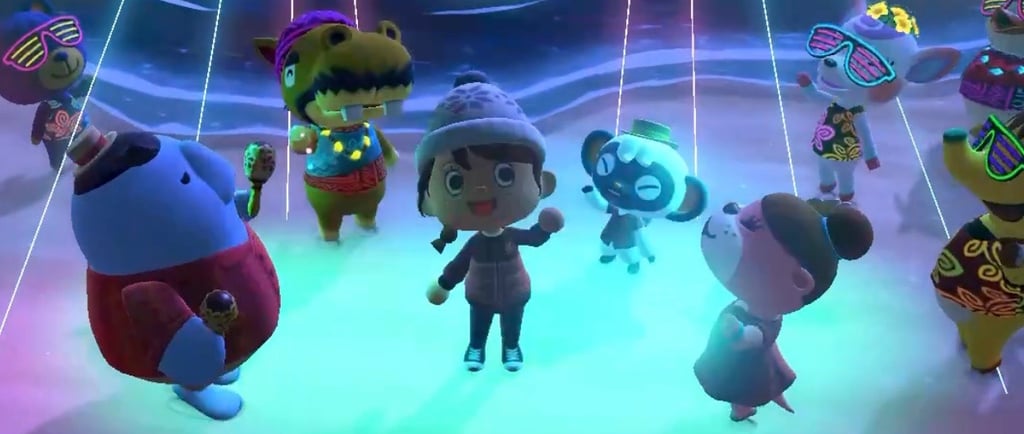Why I Recommend Animal Crossing: New Horizons for Kids Ages 7 to 18
I recommend the Nintendo Switch game Animal Crossing New Horizons for kids ages 7 to 18. It enhances developmental and social growth. It's also considered and was developed as a communication game.
Janet Thomas LPC LBA NCC
12/4/20245 min read


Why I recommend the Animal Crossing for kids.
I recommend Animal Crossing: New Horizons for kids ages 7 to 18. You don't hear that much in my field. However, Animal Crossing stands out as a uniquely constructive platform for enhancing communication skills among its players. It is a social simulation game that promotes interaction both with in-game characters and with friends and family members. The game emphasizes dialogue through various in-game activities and events, encouraging players to engage in conversations.
Moreover, the game facilitates collaborative play, where individuals can visit each other’s islands, participate in shared activities, and exchange resources. Such collaboration fosters teamwork and encourages players to develop skills necessary for coordinating efforts, problem-solving, and negotiating with one another. These are vital skills that extend beyond the virtual world and can positively impact interpersonal relationships in real life.
Animal Crossing: New Horizons also incorporates basic social networking elements, such as the ability to connect with friends online, share experiences, and maintain relationships through regular interactions. These elements create an environment where children and teens can build social networks, which is crucial during developmental stages. Through managing friendships within the game, players gain insights into maintaining relationships, respecting boundaries, and resolving conflicts—skills that are invaluable as they navigate real-world social scenarios.
Additionally, the game's structure encourages players to provide feedback and encouragement to one another, reinforcing positive communication habits. By experiencing both the fun and challenges of cooperative play, young players learn how to articulate their feelings more effectively through "reaction" and foster a sense of community. As a result, Animal Crossing: New Horizons serves as more than just a game; it emerges as a potent tool for enhancing communication skills essential for personal and social development.
Cooperative Gameplay: Fostering Teamwork and Relationships
One of the standout features of Animal Crossing: New Horizons is its emphasis on cooperative gameplay, which provides a unique environment for players to bond with their friends and family. This game allows multiple players to interact in a shared virtual world, offering endless opportunities for collaboration and mutual engagement. Players can visit each other's islands, which creates a beautiful avenue for exploration and connection, enhancing social interactions among children and teenagers.
In Animal Crossing: New Horizons, players can work together to design their islands, engage in fishing competitions, or collaborate on building projects. This aspect of teamwork is crucial for fostering strong relationships, as it encourages open communication and strategy development. For example, when two players decide to collaborate on a community project, they have to negotiate and share their ideas, which is essential for mastering social skills and learning how to cooperate effectively.
Moreover, the cooperative dynamic promotes a sense of community within the game. Children and teenagers can feel a shared sense of achievement when they reach common goals, such as completing a significant island improvement or participating in in-game events together. This sense of accomplishment reinforces the importance of teamwork, teaching players about the value of working towards a shared target.
The game's functionalities foster emotional connections, as players can express their creativity together and support each other's gaming journeys. These collaborative experiences serve as a foundation for developing real-world friendships and enhancing social confidence in younger players. Ultimately, the cooperative gameplay in Animal Crossing: New Horizons not only enriches the gaming experience but also provides an effective avenue for nurturing positive relationships and essential social skills.
Building Executive Function Skills Through Play
Executive function skills are a set of cognitive processes that enable individuals to plan, focus attention, remember instructions, and manage multiple tasks effectively. These skills are crucial for academic success and everyday life, allowing children and adolescents to navigate complex situations and make informed decisions. Animal Crossing: New Horizons, a popular life simulation video game, presents a unique opportunity for young players to develop these essential skills through engaging gameplay.
One of the central mechanics of Animal Crossing is resource management, which requires players to gather materials, manage inventory, and allocate resources wisely. This aspect of the game directly mirrors real-life scenarios where planning and organization are essential. Children who play Animal Crossing learn to assess their available resources and plan their actions accordingly, cultivating a sense of foresight that enhances their ability to make informed decisions.
Moreover, setting goals is an integral part of the gameplay experience. Players can choose to decorate their island, complete specific tasks, or develop relationships with in-game characters. By establishing personal objectives, players practice the goal-setting process, which is a vital component of executive function skills. These goals encourage children to strategize and prioritize their actions, as they must decide which tasks to tackle first in order to achieve their desired outcomes.
Additionally, the open nature of Animal Crossing fosters decision-making skills. Players encounter various challenges, such as selecting which items to sell or deciding on new developments for their island. Each decision contributes to the overall progression of the game and reinforces the importance of evaluating alternatives and consequences. Through this iterative process, players gain confidence in their ability to make choices and learn that every decision carries weight, thereby enhancing their executive function skills.
Developing Frustration Tolerance with Fun
Animal Crossing: New Horizons provides a unique environment that encourages players, particularly children and adolescents, to cultivate frustration tolerance through engaging gameplay. Within the game, players encounter a variety of challenges and occasional setbacks, such as managing in-game resources, interacting with fellow villagers, or completing tasks within given timeframes. These challenges are strategically designed to be approachable while also requiring players to adapt and persevere, making them an effective medium for learning how to cope with frustration.
The nature of these challenges requires players to adopt a positive mindset, emphasizing that setbacks are not definitive failures but rather learning opportunities. For instance, when a player works tirelessly to gather materials to craft an item, only to realize they do not have enough, it presents a chance to reassess the situation. Instead of succumbing to frustration, players learn to strategize, reorganize their priorities, and try different approaches to achieve their goals. This experience is crucial in instilling resilience, as it reflects real-life scenarios where persistence is key to overcoming obstacles.
Moreover, the social aspect of Animal Crossing further enhances resilience-building. Players can discuss their experiences with friends or family, sharing strategies for dealing with frustrations encountered within the game. This social interaction not only normalizes the experience of facing challenges but also provides support systems that encourage players to persist. By sharing their experiences, players can gain new perspectives and learn that frustration is a common part of any endeavor.
Overall, through navigating unexpected hurdles and embracing the iterative nature of progress in Animal Crossing: New Horizons, players are equipped with valuable life skills. These lessons extend beyond the virtual world, fostering a mindset that embraces challenges, paving the way for personal growth and improved frustration tolerance in real-life situations.
Inclusive Design: Empowering Girls in Gaming
Animal Crossing: New Horizons stands as a paradigm of inclusive design within the video gaming industry, particularly appealing to various demographics, including girls aged 7 to 18. The game offers a plethora of customization options that enable players to create characters that reflect their individuality. From the physical appearance of characters to clothing choices, Animal Crossing ensures that players can express their identities freely. This level of personalization not only enhances the gaming experience but also reinforces the idea that gaming is for everyone, regardless of gender.
Moreover, the game features a vibrant and multifaceted community in which players can engage in cooperative play, fostering friendships and collaborations. This social aspect of the game facilitates a welcoming environment that is especially appealing to girls, who may often feel marginalized in traditionally male-dominated gaming genres. The various activities available—from gardening and fishing to decorating homes—provide diverse gameplay experiences that resonate with a broad audience, enabling every player to find aspects they enjoy.
Animal Crossing: New Horizons also emphasizes character representation by including a cast of villagers with unique backstories and personalities. Many of these characters break conventional stereotypes typically associated with gaming. By encountering relatable characters in an engaging narrative context, players are more likely to feel recognized and valued, fostering a sense of membership within the gaming community. This inclusivity encourages girls to not only play but to embrace a lifelong passion for gaming.
In conclusion, the inclusive design of Animal Crossing: New Horizons offers an empowering platform that encourages girls to immerse themselves in the gaming world. Through varied customization options, engaging social interactions, and authentic character representation, the game promotes a balanced and welcoming environment that champions diversity and representation in the industry.
Janet's Therapy
Thomas Behavioral Health
Contact
+1 786-755-1863
© 2024. All rights reserved.


